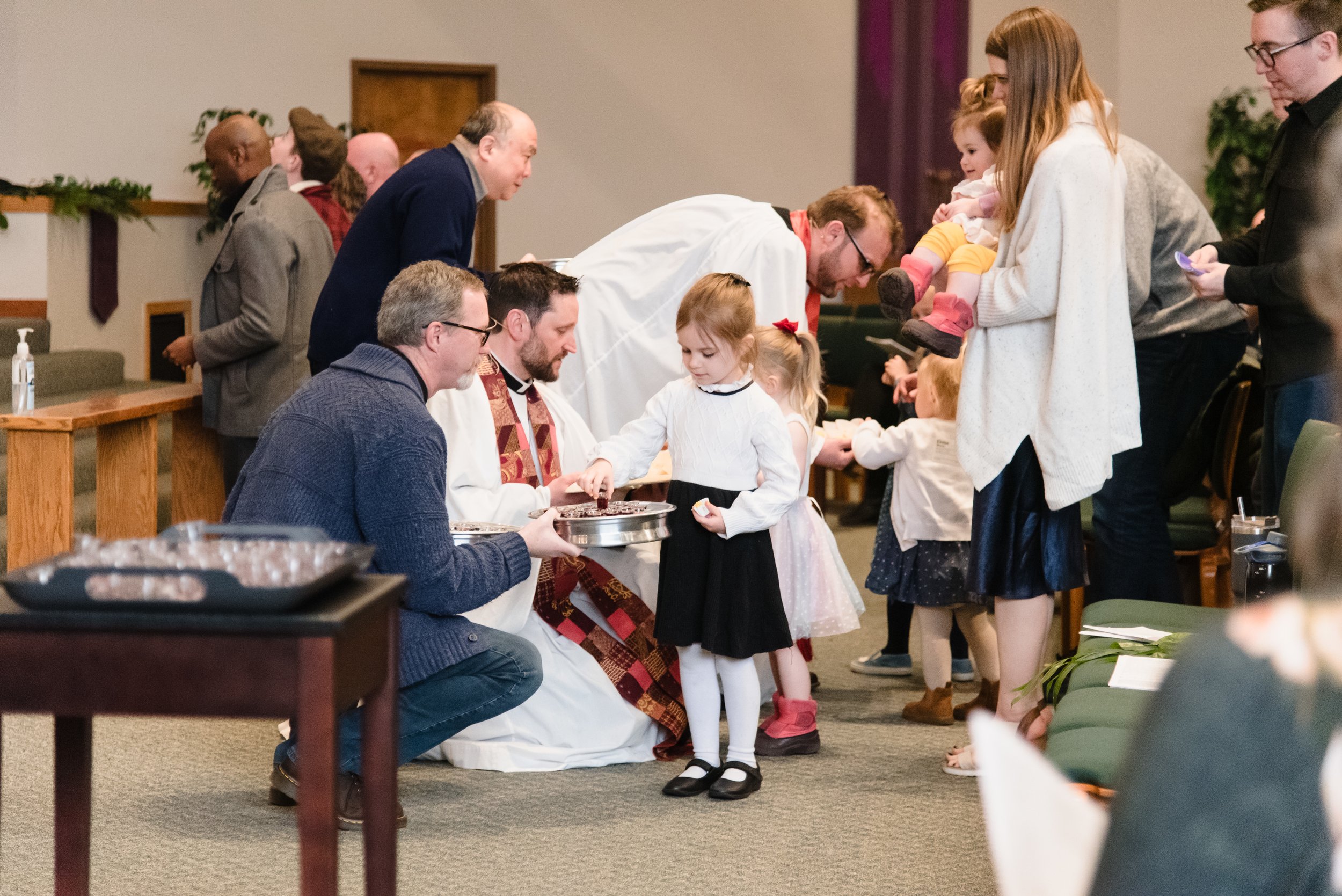How we worship
A Way both Timeless and Timely
The Anglican way is ancient, rising from biblical patterns through early church roots. It is theologically influenced by the Reformation yet retains much of the Church's centuries-old customs. This is the inhabiting of practices that have guided generation after generation of Christians. Texts from the first few hundred years AD tell of Christians worshiping in ways that are strikingly similar to what you experience on Sundays at Advent Anglican.
And yet it is still as fresh today as the people who worship by it and the Spirit who inspires that worship. In fact, we live in a place and time when people are increasingly hungry for the stability and intimacy that ancient Church practices provide. Anglicanism has a way of reintroducing Christians to the depth of the Church's riches, and many today are embracing them.
Collective Worship
When you worship with generations-old practices--practices still used globally--you develop a sense of belonging. Your faith is about more than just you. It has a fellowship within a long line of believers, stretching throughout centuries and around the world, crossing boundaries of time and place. You belong to something unthinkably grand: The Church of God.
That sense of participation in something beyond yourself is felt on Sundays. Much of what we do requires us to join together. Together we recite the psalms and pray aloud, together we affirm the Creed and confess that we are sinners, together we say the Lord's Prayer and receive communion. So much of our worship involves joining together, that our time opens with a particular type of prayer called a "Collect" (pronounced KAH-lect). Its name comes from the fact that we are seeking to collect the people from their various thoughts, worries, distractions, etc., into one place to be of one heart and one mind in worship. Sundays at Advent are not a time of individual effort but one of joining together.
Engaging the Whole Person
Maybe it's the fact that Anglicanism is sacramental--seeing the activity of God in and through his tangible creation. Maybe it's the fact that Anglicanism emphasizes the participation of the people, not just a pastor. Maybe it's the fact that we do a lot of standing and speaking! Whatever the reason, at Advent you'll notice that your whole person is engaged in worship.
The way we worship reaches beyond simply filling your mind with ideas; it seeks to stir the emotions, to sense the mysteriousness of God, to provoke the imagination, and, yes, to get your body involved through song, speech, touch, taste, kneeling, standing, and so on. Worship is about more than just right beliefs; it invites participation with our whole self.
The Language of Liturgy
Occasionally someone will ask why we use words that are antiquated like "thee" and "thou." Most of our liturgy is contemporary in its vocabulary, but some of it still retains older phrases. There are three reasons for this. First, they are indeed old words, reminding us that our worship is part of something historic. Second, they infuse our speech with a reverential tone, distinguishing our worship as something special, more than just a common conversation. Lastly, there is a poetic quality to them that keeps our worship beautiful rather than strictly utilitarian.
Another question often asked about the language of the liturgy is why we recite scripted prayers rather than simply "praying from the heart." We do have space for unscripted (extemporaneous) prayer during the Prayers of the People, but much of our prayers are prescribed. While we enjoy extemporaneous prayer, written prayers tend to be stronger theologically, more robust aesthetically, and more precise in their petition. They also lend us words to pray when we have trouble articulating what is in our hearts. We pray them with the same sincerity and urgency as when we pray extemporaneously.
Rhythmic Living by the Church Calendar
Our worship is guided by the six seasons that Christians have traditionally observed: Advent, Christmas, Epiphany, Lent, Easter, and Pentecost. Each season reminds us of particular truths about God and ourselves. Each season guides us into a certain posture of the heart as we worship. At first it might be difficult, for example, to engage forbearance and penitence simply because it's Lent, or to choose joy and celebration because it's Easter Season. With time though, these seasons build a stable pacing into our lives, and they keep our eyes on the unchanging truths of the gospel when we might be otherwise bogged down in the mundane distractions of daily life.
The seasons have a way of building up helpful ruts in our souls over time. And as we engage them, we find ourselves increasingly able to steer our hearts into those ruts and enter into worship readily and fully because of them. This is a difficult phenomenon to explain; it is equally sweet to experience.
Lastly, through this endless cycle of steadily shifting seasons, we come to learn that discipleship as a Christian is not a one-time, high-impact, big-event sort of process. Rather, in the Anglican way, it is a slow and steady rhythm of growth, a long-term relationship nourished by the patience and persistence of a God whose love is not quickly spent.

